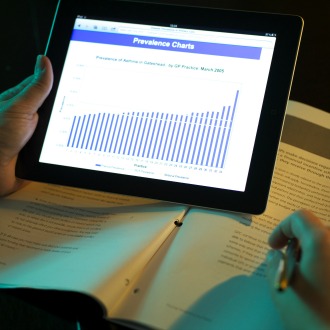QOF payments thrown into chaos as NHS England apologises for major calculation error

Exclusive GP practices across England have been hit with incorrect estimates of their QOF payments for 2013/14 after a calculation error in CQRS meant thousands of pounds were missing from their payments.
Pulse has learnt that practices have had a 1.9% reduction on average in the payments calculated by CQRS, compared with what they should be paid for their QOF performance in 2013/14, translating to more than £2,000 to the average practice.
NHS England has apologised for the error and said that payments will be adjusted at a later stage as is the ‘usual approach to QOF’.
Local leaders said this was ‘another disaster in a catalogue of disasters’ and warned practices could be facing delayed payments as a result.
As a result of the error, practices logging on to the CQRS system this week have been confronted with losses of thousands of pounds in some cases, and expected to approve QOF performance way below the level they were expecting.
Managers said that the CQRS system had used practice population figures from January 2014 to calculate the QOF payments due to practices, instead of the correct figure from January 2013.
The admission comes as area team managers revealed – in a letter to GPs obtained by Pulse – that there have been a series of errors in QOF payments involving CQRS, the system designed to calculate QOF payments. These errors are:
- A national error in the average list size used to calculate GP practice QOF payments means practices were given incorrect estimates of their achievement and all payments have to be re-calculated
- A national error in PMS deduction calculations has meant that practices were being told the wrong amount would be deducted from their QOF performance this year
- The GPES extraction of QOF data has not taken place for some practices at all. Area team managers have said only a ‘minority’ of practices were affected.
Londonwide LMCs medical director Dr Tony Grewal said the mistake was a ‘total disaster’ and that NHS England needed to be quicker to resolve problems such as these.
He said: ‘This is just one further disaster in a catalogue of disasters. It will mean significant amounts of extra work and delays to payments – and GPs are not in a situation where cash flow isn’t critical. It is one further mess-up.’
Dr Robert Morley, chair of the BMA’s GPC contracts and regulations subcommittee, said a letter had been sent to every practice, advising them that their QOF payments will be recalculated and they’ll get an increase in their payment.
However, he added: ‘Clearly they have to resubmit information for that, it’s causing additional workload for practices and additional delay.’
‘It’s yet another sort of indication of the shambolic state of affairs we have within NHS England, and with all the various agencies and organisations that are involved in the GP contract and funding of general practice.’
The problems come after a series of issues with the GPES system that was meant to automatically extract QOF, DES and vaccination performance, and the CQRS system that uses that data to pay practices.
The Health and Social Care Information Centre had originally planned to have the CQRS system ready to automatically upload DES, vaccination and QOF data by October 2013, yet the system has faced a number of setbacks, with GPs forced to take on the time-consuming task of manually inputting data and hundreds of practices facing frustration when their passwords to the reporting system expired without warning.
An NHS England spokesperson said: ‘The QOF extraction and payment processing successfully ran over the year end. However, the intended 2013/14 QOF payments initially notified to practices were incorrectly calculated by reference to average list size (the Contractor Population Index) in January 2014 rather than January 2013.’
‘The Health and Social Care Information Centre is now recalculating these payments to reflect the correct Contractor Population Index and will inform practices of the recalculated payment. The correction will take effect once the practice and area team have agreed and approved the achievement. This is consistent with the usual approach to QOF. We will also ensure that QOF aspiration payments for 2014/15 are adjusted accordingly.’
‘We apologise for any concerns that this has caused for practices.’









